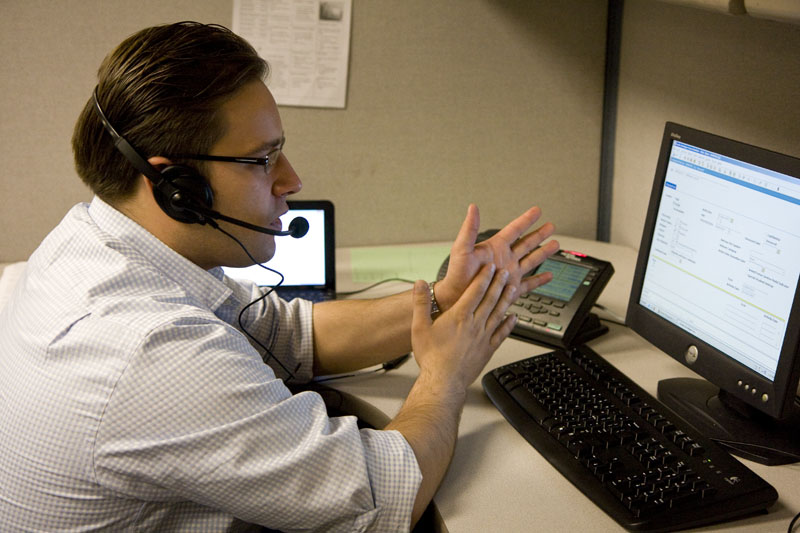The last thing a student wants to experience on the night before a midterm exam is an Internet blackout. Yet this supposedly happened multiple times during exams week and students are still reporting issues.

“The [Information Technology Services] problems on campus are like a Kanye West to my Taylor Swift,” Anne Heaton, a freshman in the Doisy College of Health Sciences, said. “It’s really frustrating when you’re trying to be productive and the Internet stops working. Especially when a majority of my homework is online.”
Students also seem to be observing a trend in the Internet ceasing to work during specific times of day.
“My friends and I joke, even though it’s not a joke, that between 10 and 11 p.m., it goes out,” Amanda Riechers, a junior in Parks College of Engineering, Aviation & Technology, said. “There have been multiple times when it has just gone out.”
Though there seems to be widespread grievances about the Internet issues, Saint Louis University’s ITS has only received seven official complaints from students.
“We are dedicated to the highest level of support to our customers, especially the students,” Katherine Krajcovic, manager of Communication and Training for ITS, said. “If one person doesn’t have service, that’s a big deal to us.”
Krajcovic expressed that every single received complaint was addressed, and ITS Network Architect Michael Moore even went as far as giving his personal cell phone number to each concerned student.
“[Moore] did not receive responses from any of the students that reported Internet issues,” Krajcovic said.
With the minimal complaints received by ITS, some actions have been taken in order to better attempt to diagnose any Internet issues.
Moore has set up a “test workstation,” which is connected to the Marchetti East wireless network. This workstation will allow for Moore to test Internet connectivity from his home outside of business hours.
Though Moore has taken measures to troubleshoot possible culprits, more student feedback will help aid the process of fixing the alleged issues.
“We’re not afraid of constructive criticism,” Senior Communication Specialist Kit Breshears said. “We want the students to tell us [about the issues].”
According to Breshears, measures have been taken in order to increase communication between ITS and its customers, which are primarily SLU students.
“I can acknowledge that we know [students] are most likely on Facebook more than on SLU email,” Breshears said. Due to that assumption, ITS has created and launched a Twitter page, and is in the process of launching a Facebook page. The Twitter page web address and other ITS contact information can be found in the fact box on the left.
Ideally, the social networking pages will provide opportunities for the creation of more dynamic dialogue between students and ITS service agents. However, if students want to file formal complaints, and thus allow ITS the opportunity to fix the problems, the help desk needs to be reached. This can be done so by email, by phone or by simply walking into the ITS Tech Service Center.
Not only is ITS moving forward with its travel into the social networking realm, but it is also in the process of conducting a survey which will be sent out to students.
Krajcovic and Breshears expressed that the survey will offer more meaningful comments from students in order to fix current issues and hopefully prevent further problems.
“The students are the reason we are all here,” Krajcovic said. “We really are focused around being proactive.”
“Fixing [issues] is what we’re here to do,” Breshears said, and those issues can only be addressed after receivingofficial student inquiries.
While ITS does not seem to be receiving many student complaints, Student Government Association has. SGA President Michael Harriss confirmed that students had come to him, expressing their frustrations with the system.
“We’ve received around 25-30 requests to look into the wireless issues,” Harriss said.
A majority of the complaints came during midterms week.
Due to the influx of the Fixing the Little Things requests, Harriss said there has been a committee formed to try and fix the concerns regarding the Internet, instead of addressing each individual request.
According to Harriss, Parks College Senator Ben Orr is heading the committee, and committee members have already spent time meeting with ITS officials.









